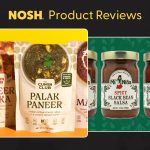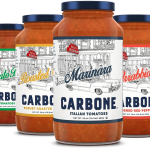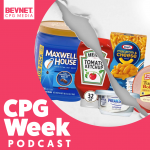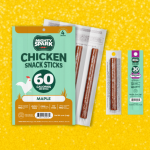NOSH Voices: Why Food Startups Need to Keep Profitability in Mind Right Now

About the Author: Luke Vernon is a Managing Partner of Ridgeline Ventures (recently called Range Light), an investment firm in healthy living companies such as Bobo’s, Beanfields, NOKA, Cotopaxi and others. He’s an operator-turned investor, having led Eco-Products from under $1M in revenue to $80M before it was acquired, as well as the founder of three other companies and an advisor to several others.
It’s easy to forget the bad when things are going well. Here we are eight years after the end of the “Great Recession” –which, by the way, is the third longest period between recessions since this 1776. The stock market continues to rise. Food startups are getting funded. M&A activity is strong. What could go wrong?
We’re all smart enough to know that the current market environment won’t last, aren’t we? “But the natural food industry is robust. It’s different than other industries – people will always buy healthy, organic food even during a recession,” most of us have said to ourselves.
Not so fast.
Let’s take a look back on history. From 2008 to 2011, U.S. organic food sales did in fact grow $4.7B, or 22%, according to the Organic Trade Association. But that’s paltry compared to the $8.3B, or 63%, growth from 2005 to 2008 and the $10.7B, or 33%, growth from 2013 to 2016.
So, yes, it’s fair to assume that when, not if, another recession occurs that organic food sales probably won’t decline, but the rate of growth and the dollar growth absolutely will. I’ll bet my organic pantry on that.
What does this mean for food startups?
If you were running a company in the 2008-2010 era, you probably remember that raising money all of a sudden got much more difficult. I do. Term sheets were pulled off the table, valuations were reduced, and banks didn’t want to lend. Investors and financiers got skittish.
Do you think investors won’t get skittish the next time around? Think again.
When the music stopped during the last recession, many investors took a wait-and-see approach for a period of time. For some, that approach lasted three months. Others were quiet for six months and for some it was a couple of years. Many angels kept their checkbooks in the drawer as their personal savings shrank. And venture capitalists applied extra scrutiny on new investments while they all of a sudden had to manage the disarray of their portfolio companies, keep their limited partners calm, and figure out how to raise another fund in a very challenging environment.
If you think you’ll need to raise money in the next six months to three years (who knows when the next recession will occur), it’d be wise to steer your ship toward the land of fundamentals: really strong gross margins, an imminent path towards profitability, scalable operating expenses, and capital efficiency. Those are the attributes that early stage investors placed more value on in the last recession.
As most venture investors can attest, the number of food companies that are bleeding cash right now is staggering, all with the hopes of one day being acquired for the colossal value they think their brand is worth. Mind you, in 2016, there were just 222 food and beverage companies acquired in the U.S., and that includes companies in beer, wine and spirits, according to Zenith Global, a food and beverage consultancy. Even in a “robust” M&A environment like in 2016, there were thousands of food and beverage startups not acquired that continued to burn cash.
Couple that with valuations at all-time highs and it makes me as an investor a little cautious. I can’t imagine I’m alone. Many companies are raising money at valuations they’ll have a hard time supporting in their next round of financing, especially if the next round is during a recession, but perhaps even if it isn’t. Other companies don’t think they’ll need to raise more money in the future. That sounds like a nice utopia, but it’s often not the case for fast-growing CPG brands.
I don’t write all of this to scare you. And I’m not saying it doesn’t make sense for some companies to burn cash for a period of time. What I am saying is that if you think you’ll need money in the next few years, you might start thinking long and hard about how investors react and what they look for in challenging economic times. Don’t put the livelihood of your family, your employees, or your company in jeopardy by thinking that you won’t be affected when the music stops. We all will. It’s a question of how.
At Project NOSH and BevNET, we pride ourselves on having a robust network of food and beverage entrepreneurs, industry insiders and advisers. NOSH Voices is a series of columns penned by respected experts to provide a spectrum of views from within the food community. Interested in contributing to NOSH Voices? Contact the Editors.
















